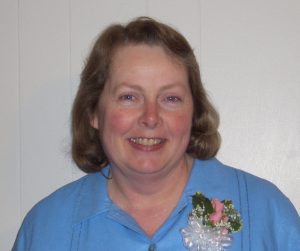In the early 1920s, a young boy who hadn’t cared much for reading became enthralled with Jack London’s The Call of the Wild. He then read everything he could get his hands on.
He dreamed of writing his own stories. He hadn’t had much formal education, but he knew life with his dogs and home. He didn’t have paper, so he wrote descriptions in the dirt of what he heard in nature.
As a young man, he traveled around the country looking for work and wrote stories in his off time. He cut open brown bags for paper to write on. He couldn’t spell well. He wrote line after line continuously with no paragraphs. His only punctuation was a dash when he came to a pause in a narrative. When he finished, he rolled the paper up, tied it with a string, and put it in his trunk. He was ashamed of his lack of skill, but he kept writing the stories on his heart.
When he met the woman he wanted to marry, he was so ashamed of his writing that he burned all his manuscripts before the wedding. Some months later, he told his wife, Sophie, about the stories he had burned. She encouraged him to write them again.
He wouldn’t let her see the manuscript until he was done. When he finally gave her the manuscript, he left the house because he didn’t want to see her reaction. When he called her, she told him the story was wonderful but needed to be lengthened. What he had was too long for a story and too short for a book.
The man transformed his 30,000 words into 80,000. His wife edited his handwritten manuscript.
The manuscript was accepted for serialization by the Saturday Evening Post and then published as a book by Doubleday. But Doubleday marketed the book to adults, and sales languished. One editor who believed in the story arranged for the author to speak to a group of teachers, who then took the book back to their classrooms. Children loved it. The publisher reclassified the story as a children’s book. The book eventually became a beloved classic: Where the Red Fern Grows by Wilson Rawls, based on his boyhood in Oklahoma.
Rawls later spoke all across the country. His most famous speech was titled “Dreams Can Come True” about his own writing journey (his speech can be heard in five parts on YouTube beginning here).
Rawls’ story encourages writers in several ways.
1. If you have a story on your heart, write it. Rawls found ways to write through less than ideal circumstances.
2. If you don’t have the necessary skills, it’s never been easier to acquire them. Numerous books, classes, and conferences are available. Many writers share vital information and advice for free through blogs and podcasts. You probably have friends willing to read your work and give you feedback. You might pray for your own “Sophie,” who would be willing to edit your work.
3. Trust God’s guidance. I don’t know if Rawls was a Christian. But you can’t listen to his story without noting several key factors or people without which his book would not have come to be: Sophie, the Saturday Evening Post editor who wanted to take the book to Doubleday, the Doubleday editor who fought for the story, the speaking engagement to teachers, the switch in marketing from adults to children. Ask God to guide your way, bring across your path the people you need to meet, and incline your thinking and your publisher’s as to the best way to present the book.
With help, hard work, and God’s leading, publishing dreams can come true.

Barbara Harper lives with her husband of 40 years in Knoxville, TN. They raised three sons, one of whom added a lovely daughter-in-law and an adorable grandson to the family. Barbara loves reading, writing, and card-making. She has blogged for almost 14 years at https://barbaraleeharper.com/. She wrote a newsletter for women at her church for 15 years as well as magazine articles, newspaper columns, and guest blog posts. One of her passions is encouraging women to get into the Word of God for themselves. She’s currently working on her first book-length project.





2 Comments
This was such an encouraging story and post.
Thanks so much, Joanne. Rawls’ story was a big inspiration to me.